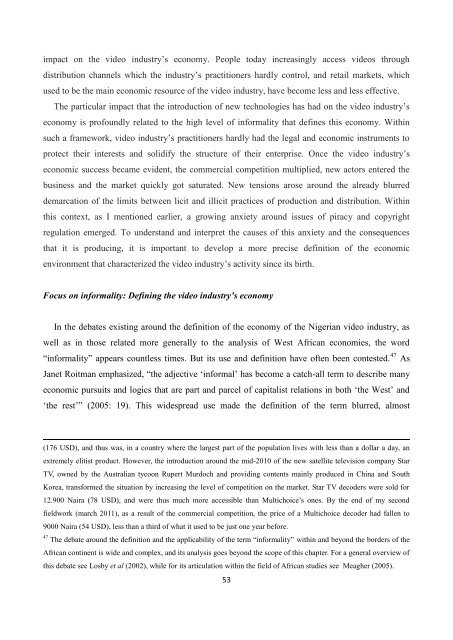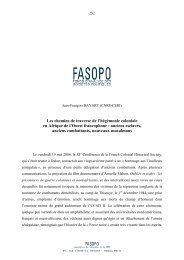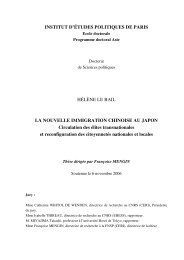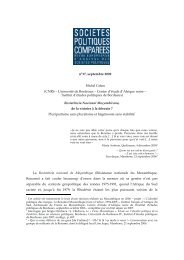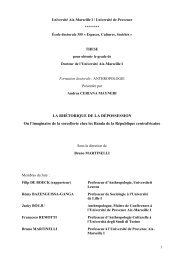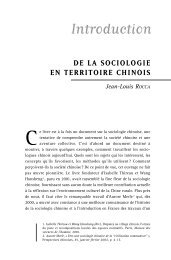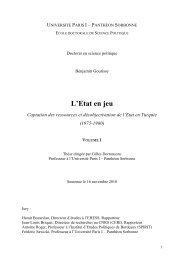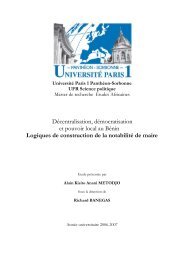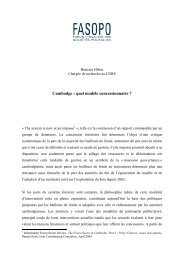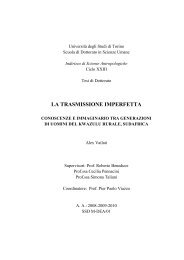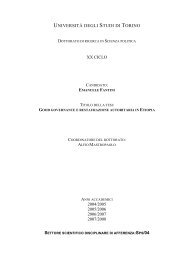You also want an ePaper? Increase the reach of your titles
YUMPU automatically turns print PDFs into web optimized ePapers that Google loves.
impact on the video industry’s economy. People today increasingly access videos throughdistribution channels which the industry’s practitioners hardly control, and retail markets, whichused to be the main economic resource of the video industry, have become less and less effective.The particular impact that the introduction of new technologies has had on the video industry’seconomy is profoundly related to the high level of informality that defines this economy. Withinsuch a framework, video industry’s practitioners hardly had the legal and economic instruments toprotect their interests and solidify the structure of their enterprise. Once the video industry’seconomic success became evident, the commercial competition multiplied, new actors entered thebusiness and the market quickly got saturated. New tensions arose around the already blurreddemarcation of the limits between licit and illicit practices of production and distribution. Withinthis context, as I mentioned earlier, a growing anxiety around issues of piracy and copyrightregulation emerged. To understand and interpret the causes of this anxiety and the consequencesthat it is producing, it is important to develop a more precise definition of the economicenvironment that characterized the video industry’s activity since its birth.Focus on informality: Defining the video industry’s economyIn the debates existing around the definition of the economy of the Nigerian video industry, aswell as in those related more generally to the analysis of West African economies, the word“informality” appears countless times. But its use and definition have often been contested. 47 AsJanet Roitman emphasized, “the adjective ‘informal’ has become a catch-all term to describe manyeconomic pursuits and logics that are part and parcel of capitalist relations in both ‘the West’ and‘the rest’” (2005: 19). This widespread use made the definition of the term blurred, almost(176 USD), and thus was, in a country where the largest part of the population lives with less than a dollar a day, anextremely elitist product. However, the introduction around the mid-2010 of the new satellite television company StarTV, owned by the Australian tycoon Rupert Murdoch and providing contents mainly produced in China and SouthKorea, transformed the situation by increasing the level of competition on the market. Star TV decoders were sold for12.900 Naira (78 USD), and were thus much more accessible than Multichoice’s ones. By the end of my secondfieldwork (march 2011), as a result of the commercial competition, the price of a Multichoice decoder had fallen to9000 Naira (54 USD), less than a third of what it used to be just one year before.47 The debate around the definition and the applicability of the term “informality” within and beyond the borders of theAfrican continent is wide and complex, and its analysis goes beyond the scope of this chapter. For a general overview ofthis debate see Losby et al (2002), while for its articulation within the field of African studies see Meagher (2005).53


